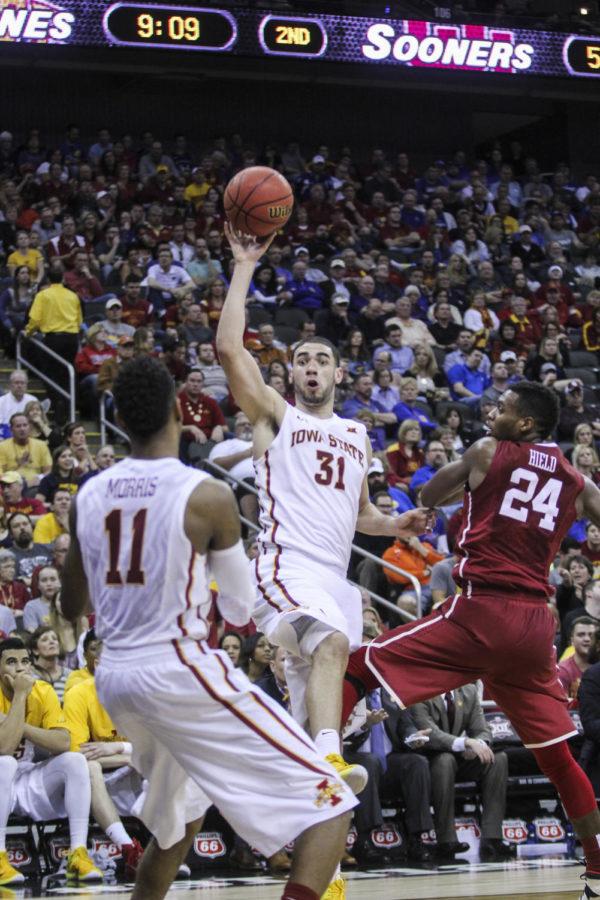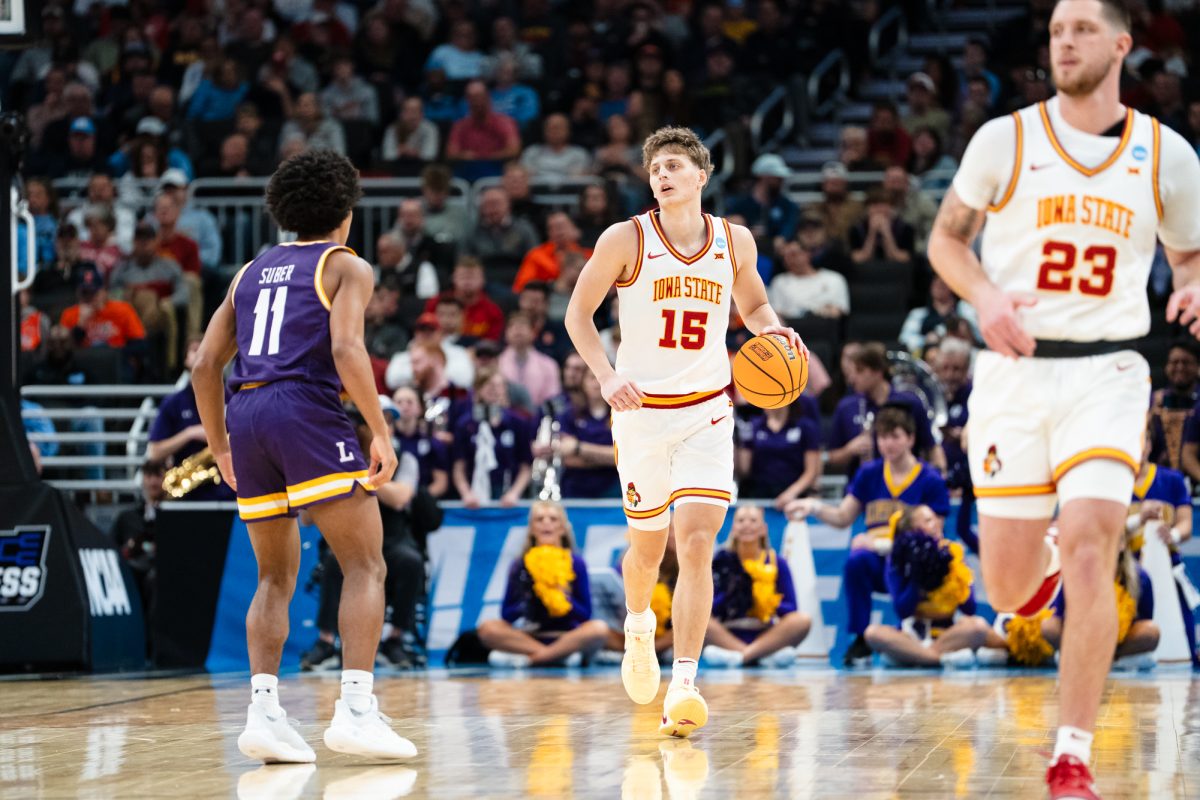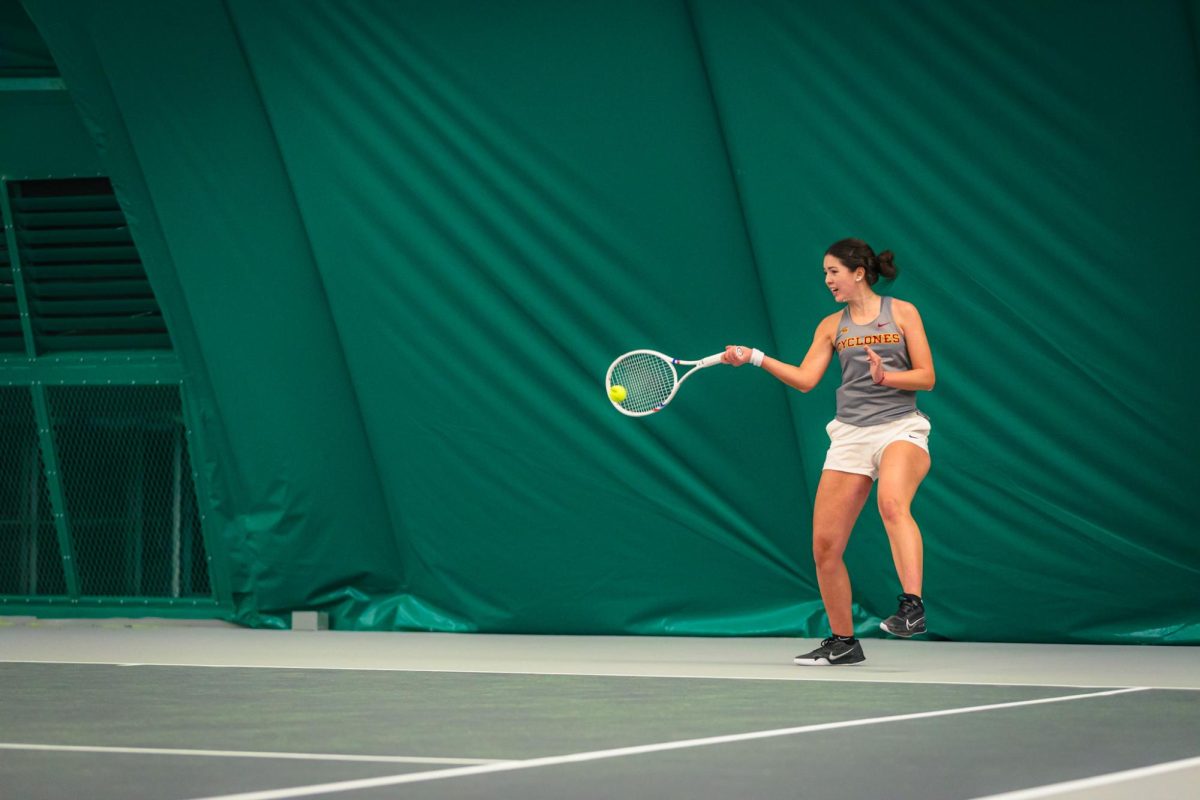Prohm to let players break free on offense
October 12, 2015
“Scratch everything,” ISU coach Fred Hoiberg told his locker room late in the 2014-15 season as Iowa State prepared to take on Oklahoma. “Georges [Niang] and Monte [Morris] go make plays one-on-one, and we’ll live with the results.”
The result was a victory. And as Morris recounted the story on media day, he was optimistic about how the philosophy of offensive autonomy promoted by Hoiberg in general — and taken to another level against Oklahoma — would be carried on by new ISU coach, Steve Prohm.
“If you look at it, me and [Niang] were in that pitch action late in the season, and we were really able to be successful,” Morris said. “Coach Prohm is going to give me more opportunities to play in space one-on-one this season, and you should see a lot of that.”
Prohm shares a similar offensive philosophy to the one Hoiberg implemented, but Prohm is planning to take it to the next level by consulting with his offensive primaries — such as Niang and Morris — on strategic matters, making them quasi-assistant coaches on the offensive end.
And it’s a development the players are excited about.
“I guess it’s pretty cool. Do I have like a new title now?” Niang laughed. “I think it’s just me and coach talking basketball. He wants to figure out how it goes down around here, and I want to pick his brain on the stuff that he thinks would work.”
Perpetuating a free-form, unrestricted offense is a way to smooth the transition to a new regime for his players both on and off the court. As the 14th highest-scoring outfit in the nation last season at 77.8 points per game, Prohm isn’t trying to fix what’s not broken.
Some of Prohm’s motivation is also about trust. A veteran-laden team, the Cyclones need more of a guide than anything, which is how Prohm said he hopes to function in his first year at the helm.
Niang said he feels like the new man in charge has struck a good balance in his attempt to follow in the footsteps of Hoiberg, the recently departed and heavily idealized hometown hero.
“[Hoiberg] sort of was in here and was like a legendary figure. [Prohm] is in here earning our trust and respect every day,” Niang said. “You can tell the way he carries himself he’s trying to do that.”
Where Prohm is asserting himself extensively is on the defensive side of the ball with a specific focus on rebounding — two areas which haunted Iowa State last season.
The Cyclones allowed 69 points per game to opponents in 2014-15, good enough for only 248th in the nation. Iowa State also grabbed fewer than 36 rebounds per contest, slotting them 92nd nationally in that category.
“We need to get better defensively for us to take the next step,” Prohm said. “And taking the next step — whether that’s 30 wins, whether that’s Final Four — it’s just taking the next step as players, as men, as a team and seeing where that puts us.”
The problem areas Prohm identified are transition defense, pressuring the ball, denying in passing lanes to slow ball rotation and guarding the 3-point line more effectively — while also stressing the need to rebound the ball at a higher clip.
But it’s not as though there was a lack of effort or attention to the defensive side of the ball under Hoiberg. So many familiar players stepping into new roles and assuming more responsibility will be paramount.
“I expect like [Niang], Abdel [Nader], Deonte [Burton] and even [Morris] as a point guard to get down there and get some rebounds,” said forward Jameel McKay, the team’s primary enforcer in the paint. “They’ve been doing it all summer.”
Adding players who can achieve the defensive improvements Prohm seeks is also crucial, but that process is essentially over for this season. Whether the roster has picked up anyone who can function as such remains a pertinent question.
“I definitely think [freshman Simeon Carter] is going to be able to give [Niang] and [McKay] some minutes for them to rest, and I feel like guys are really eager to get after it on the defensive end now,” said senior Naz Mitrou-Long.
And so it appears the picture of ISU play under Prohm will be workaday defense and offensive artistry — a sort of elaborated, extended Hoiberg model, characterized by the staff and players getting to know one another better with each passing game.
“These guys are going to get a lot of freedom. I want them playing with great confidence, but I need to use them as a resource,” Prohm said. “I don’t need to say this is how we’re going to do things because this is how I did it. That wouldn’t be smart.
“I need to meet these guys halfway.”







